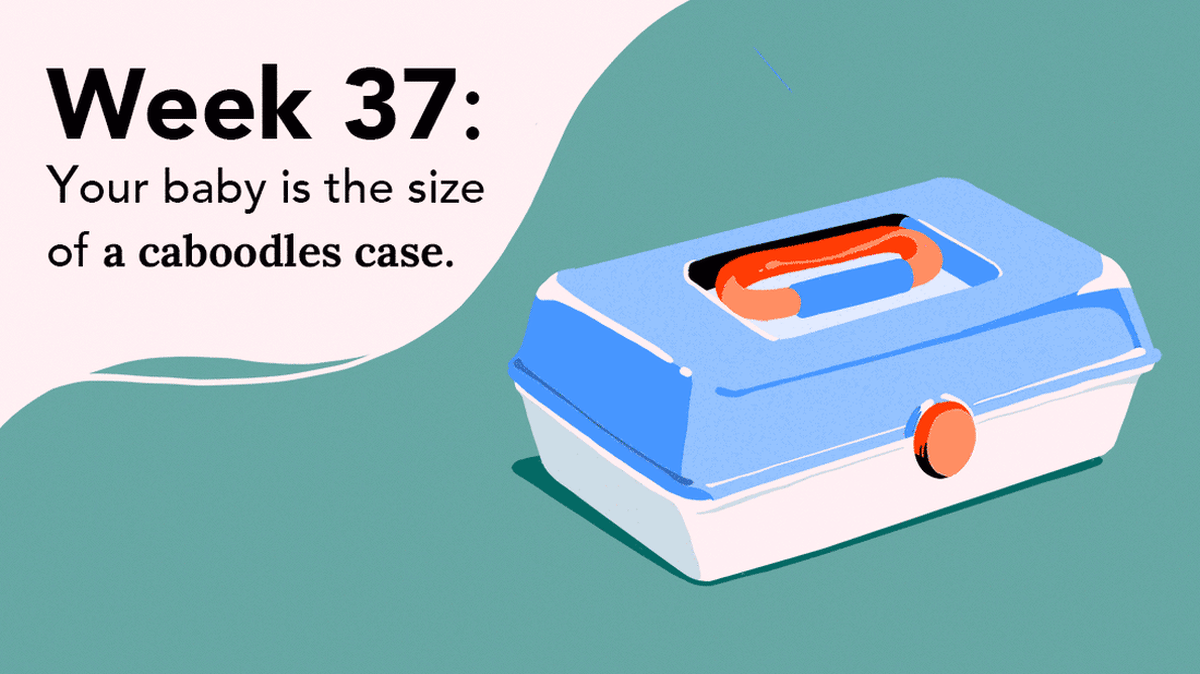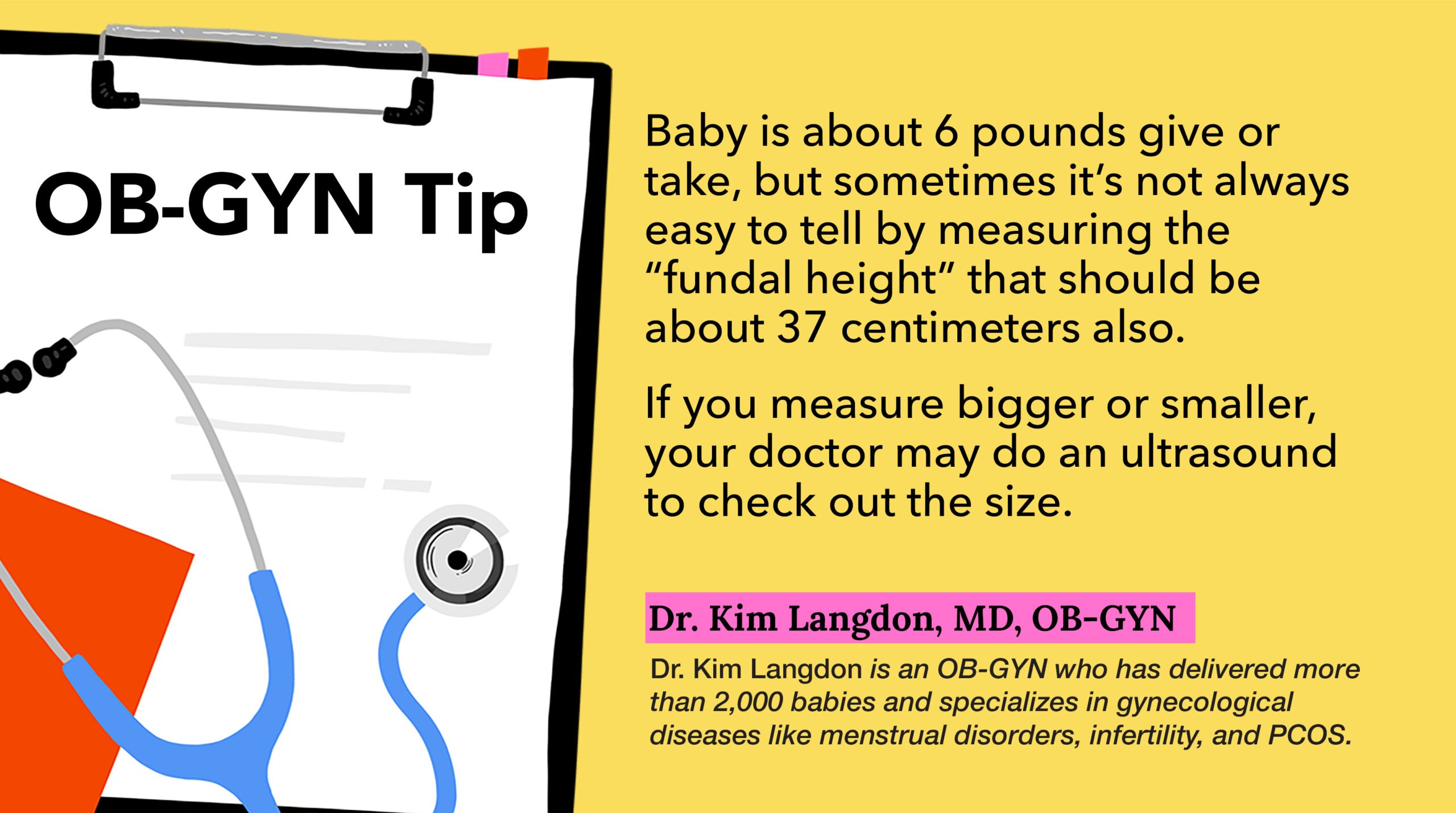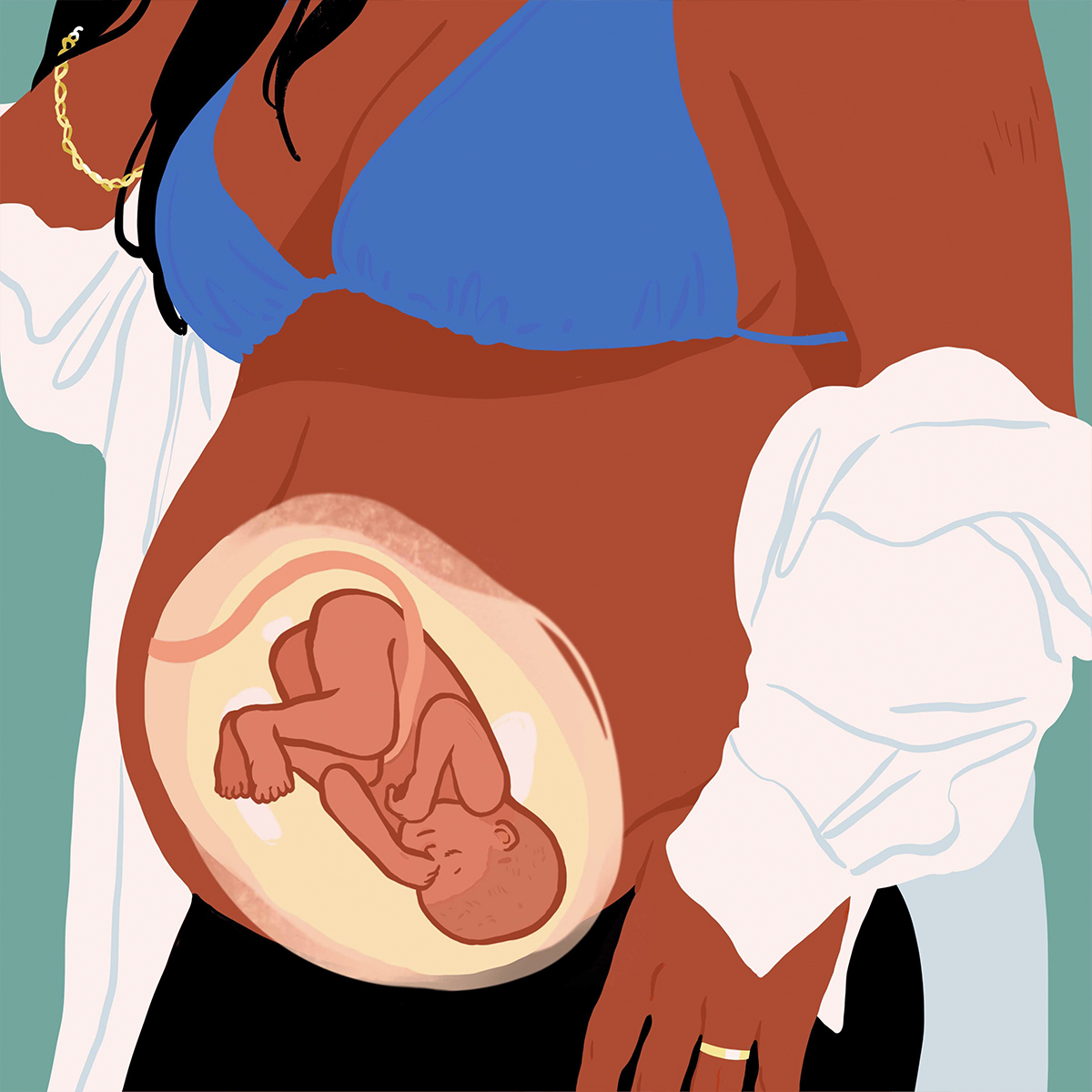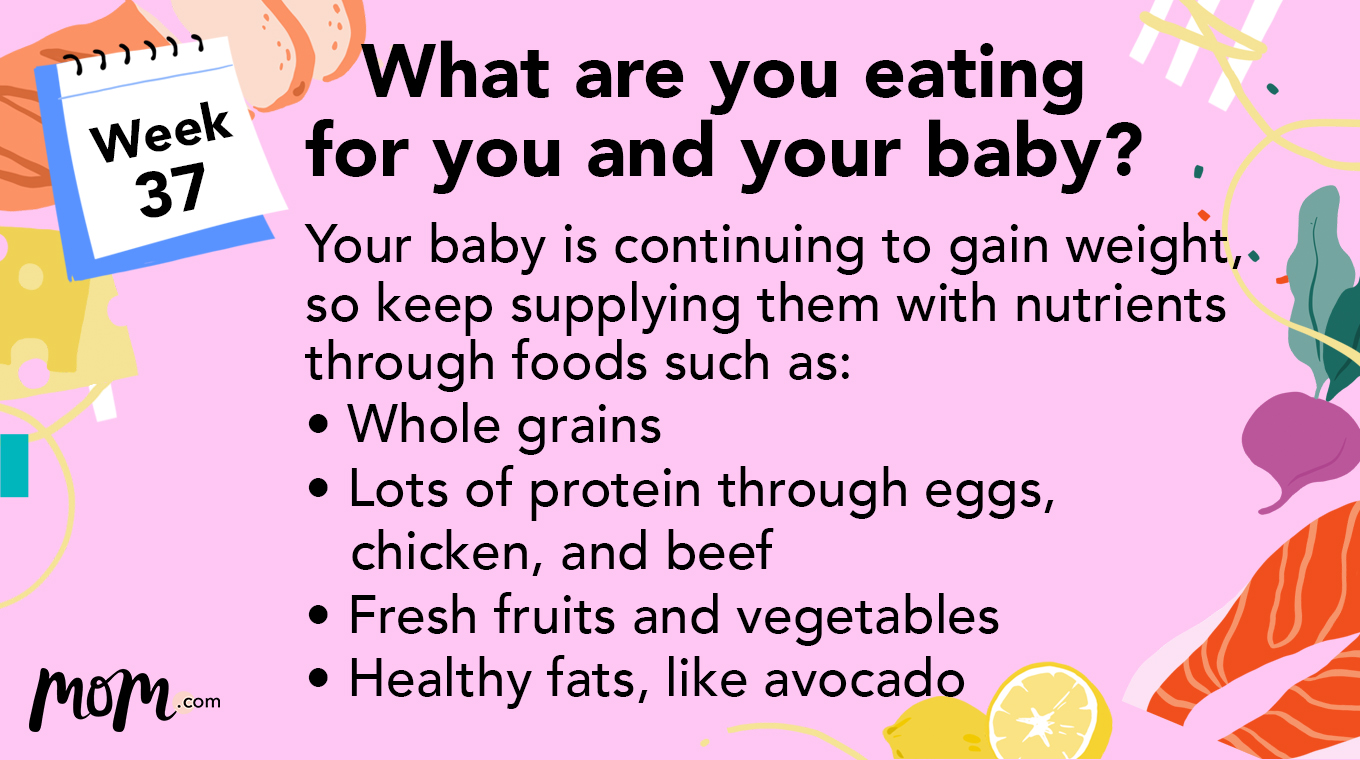
You’re 37 weeks pregnant!
Your baby is now as big as a Caboodles case! As you keep inching closer and closer to your due date, you’re probably counting down the days to baby with a lot of anticipation — but don’t get discouraged if it doesn’t happen soon! Whether you give birth this week or (gulp) four weeks from now, pregnancy is quickly coming to an end … and that means you’re closer than ever to comfortably sleeping on your stomach once again.
By now, you’ve definitely learned that pregnancy comes with a lot of surprises, and the fun isn’t over yet! Here’s what you can expect during Week 37.
Pregnancy symptoms at 37 weeks

Your pregnancy is almost over, and that means that dealing with symptoms you might have been facing lately is almost over, too — but you’re not in the clear yet. Experiencing back pain, sleepless nights, and a whole lot of trips to the bathroom? That’s all par for the course, along with these possible symptoms during Week 37:
Braxton Hicks Contractions
By now, you’re probably used to the feeling of Braxton Hicks contractions, and they’ll likely continue as your body prepares for birth. Don’t be too alarmed by them — if what you’re feeling is the real deal, they’ll be coming in a regular pattern and won’t be stopped by drinking water or taking a nap.
Abdominal pressure
Now that you essentially have a full grown newborn baby in your tummy, your abdomen is probably feeling the pressure, especially as your baby prepares to enter the world.
Nausea
As you’ve probably noticed, stomach upset is a big part of pregnancy, whether you’re in the first trimester or the third. You may continue to feel nauseous and have GI discomfort this week, along with some heartburn.
Swelling
If your feet weren’t swelling before this, you might have noticed that they are now! Of course, report any unusual or rapid swelling to your OB-GYN, but seeing your hands and feet become puffier is normal. Wear rings with caution (or not at all).
What does 37 weeks equal in months?
In week 37 of pregnancy, how many months along are you? You’re nine months pregnant this week!
Your ultrasound
Ultrasounds are likely behind you at this point, unless your OB-GYN feels it’s necessary to check out how things are going in there. But if you could get an inside look at your belly, you’d see a fully formed baby in there who is running out of room pretty quickly!
Your pregnant belly at 37 weeks

At 37 weeks, your belly is just about as big as it’s going to get … but don’t be surprised if you end up expanding just a little more toward the end there. At this point, you’ve likely gained between 25 to 35 pounds, with your baby weighing between 6 and 7 pounds of that.
Pregnancy tips at 37 weeks
If you can swing it, now might be a good time to say goodbye to your coworkers and officially go on maternity leave. Since baby can come at any time in the next few weeks — and since you’re probably feeling pretty uncomfortable at this point — it’s not a bad idea to earmark this time for resting and relaxing at home as much as you can before the big day.
“We don’t have a culture in the United States of taking rest before the birth of a child because there is an assumption that the real work comes after the baby is born,” maternal and child health professor Sylvia Guendelman told The Wall Street Journal. “People forget that mothers need restoration before delivery.”
Your pregnancy checklist at 37 weeks
As your pregnancy winds down, here’s what you might want to think about doing:
- Make sure your hospital bag is fully packed and ready to go
- Put the finishing touches on the nursery
- Finish up your plans for after birth, including things like meals, child care for older children, and who will help you in those first weeks after baby is born
- Give yourself permission to relax. Watch as much Netflix as you please, guilt-free!
What are you eating for you and your baby?

Right now, your baby is continuing to gain weight before they make their grand entrance, and that means it’s important to continue to supply them with the nutrients they need to be big and strong once they’re born.
Some foods you might want to eat this week include:
- Whole grains like brown rice and wheat toast
- Plenty of protein, including eggs, chicken, and beef
- Fresh fruits and vegetables
- Healthy fats, like avocado
When to call your doctor
As things wind down, it’s important to keep an eye out for any symptoms that might indicate that labor is impending or that baby needs to be checked out, like:
- Your baby isn’t as active as they usually are or isn’t meeting kick counts
- Contractions that are five minutes or less apart
- Bleeding
- Your water breaks
- Sudden and unusual swelling
At this point in your pregnancy, don’t feel shy about giving your OB-GYN a call — this is what they’re here for!
Note: If you are visiting a medical professional during COVID, make sure to ask about the facility’s safety measures and confirm that they are following COVID protocols as indicated by the Centers for Disease Control and Prevention.
Special Concerns: BIPOC Pregnancy
Rising maternal mortality rates for Black women are alarming, but it can help ease your fears to come prepared. It’s a good idea to discuss those fears with your OB-GYN, as well as preparing a birth plan that you fully discuss with your provider and those who will be supporting you during birth and in the days afterward. You should speak up for yourself if you feel that something is going wrong — now and at any point while giving birth.
“If you feel like you’re not being listened to, it could be effective to say something along the lines of, ‘I know this might be something that you see commonly, but this really scares me. For me, this feels really different.’ Something like that would make me pause,” Dr. Neel Shah told Self.
Coming soon: Week 38
Is it time to welcome baby yet?



